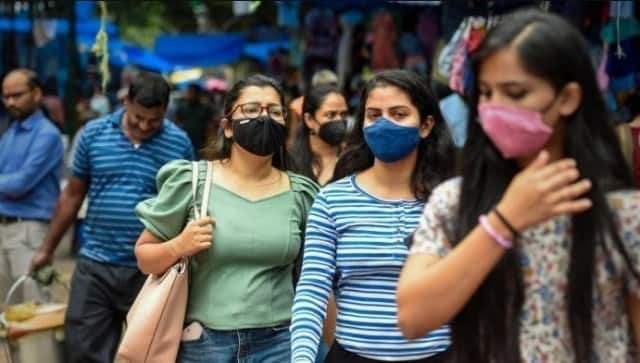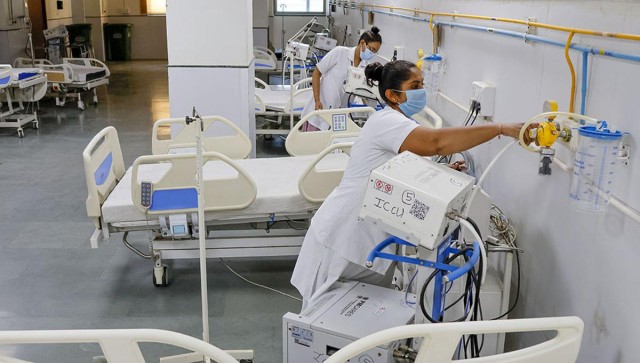The number of coronavirus cases in India has been gradually rising lately. Data from the Health Ministry show that the South Asian nation recorded 3,016 new COVID-19 cases in the last day, a 40 per cent jump since yesterday. With 14 deaths—three reported by Maharashtra, two by Delhi, one by Himachal State in the course of a single day, and eight reconciled by Kerala—the country’s COVID-19 death toll has risen to 5,30,862. It is also the highest infection count in nearly six months. On 2 October 2022, India reported the highest number of 3,375 cases. Virologists and epidemiologists have cautioned that a new variant, XBB.1.16, maybe the cause of the rise in cases as they continue to rise. Let’s take a closer look. XBB.1.16 new COVID variant could be behind the surge According to experts, XBB.1.16, the new Omicron variant is a cause of concern for the sudden rise in COVID infections. According to Srinath Reddy, a former president of the Public Health Foundation of India, new variants will continue to appear as the virus keeps evolving over time, and the XBB 1.16 is the next strain. They all belong to the omicron family and have higher infectivity than virulence, reported the German broadcaster DW. Vipin M Vashishtha, former convenor of the Indian Academy of Pediatrics and consultant paediatrician at the Mangla Hospital and Research Centre, Bijnor took to Twitter and explained, “XBB.1.16 has a 140 per cent growth advantage over XBB.1.5. It is far more aggressive than XBB.1.5. And probably faster than XBB.1.9.”
Doctors claim that COVID patients are exhibiting a similar set of symptoms to those that were seen in India between January and March of last year during the third wave of the pandemic, reported Times Of India. Common symptoms of the new variant are fever, sore throat, cold, headache, bodily aches, and weariness. It may also affect your digestive system. It is highly transmissible According to the UK Health Security Agency, “XBB.1.16 is a lineage with 3 new spike mutations (E180V, K478R, and S486P),” Vipin M. Vashishtha stated.
“All eyes should be on India! If XBB.1.16 aka #Arcturus could succeed to wade through the ‘sturdy’ population immunity of Indians that successfully resisted the onslaught of variants like BA.2.75, BA.5, BQs, XBB.1.5, then the whole world must be seriously worried!!,” he added in the Twitter thread. The sub-variant rapidly spreads and exhibits additional nucleotide and amino acid changes, according to Hindustan Times. This strain, which first appeared in 2021 and is a hybrid lineage of recombinant XBB, has a high transmission rate. The outlet quoted Dr Charu Dutt Arora, Infectious Disease Specialist, Consultant Physician AmeriHealth, Asian Hospital as saying, “The XBB 1.16 subvariant is a highly transmissible variant with high infectivity rate. The sub-variant has mutations on the amino acids and nucleotide space that gives it the capacity to escape hybrid immunity achieved by vaccination and previous exposure to the virus.” States on high alert In response to the alarming increase in Covid cases this week, several states intend to conduct
emergency meetings
. According to NDTV, in Delhi, where the infection count had reached zero on 16 January, 300 cases had been reported on the previous day. Today’s meeting has been scheduled by the Delhi government to discuss the state of the nation’s capital. Senior health department representatives, medical directors of state-run hospitals, and other interested parties will attend the meeting. [caption id=“attachment_12377682” align=“alignnone” width=“640”] Doctors claim that COVID patients are exhibiting a similar set of symptoms to those that were seen in India between January and March of last year during the third wave of the pandemic. PTI[/caption] Many districts in Maharashtra have also reported a substantial increase in Covid cases, including Mumbai, Pune, Thane, and Sangli. Despite all of their efforts, the Maharashtra government claims that many individuals are not receiving the Covid vaccination booster shot. According to officials, in the state, fewer than 1 crore people have yet to take the booster dose. Hospitals to hold anti-COVID drills According to DW, following the spike in cases, Rajesh Bhushan, secretary of the ministry of health, met with representatives from various states to examine the country’s
COVID
readiness. In order to guarantee that the medical infrastructure is operationally ready, state officials have also been instructed to conduct simulated drills at healthcare facilities on April 10 and 11. “The exercise is aimed at taking stock of the availability of medicines, hospital beds, medical equipment and medical oxygen,” a senior health official told DW. In December of the previous year, when COVID-19 cases were on the rise in nations like China, Japan, Brazil, and South Korea, a similar exercise was conducted. With inputs from agencies Read all the
Latest News
,
Trending News
,
Cricket News
,
Bollywood News
, India News
and
Entertainment News
here. Follow us on
Facebook
,
Twitter
and
Instagram
.
Doctors claim that COVID patients are exhibiting a similar set of symptoms to those that were seen in India between January and March of last year during the third wave of the pandemic. PTI[/caption] Many districts in Maharashtra have also reported a substantial increase in Covid cases, including Mumbai, Pune, Thane, and Sangli. Despite all of their efforts, the Maharashtra government claims that many individuals are not receiving the Covid vaccination booster shot. According to officials, in the state, fewer than 1 crore people have yet to take the booster dose. Hospitals to hold anti-COVID drills According to DW, following the spike in cases, Rajesh Bhushan, secretary of the ministry of health, met with representatives from various states to examine the country’s
COVID
readiness. In order to guarantee that the medical infrastructure is operationally ready, state officials have also been instructed to conduct simulated drills at healthcare facilities on April 10 and 11. “The exercise is aimed at taking stock of the availability of medicines, hospital beds, medical equipment and medical oxygen,” a senior health official told DW. In December of the previous year, when COVID-19 cases were on the rise in nations like China, Japan, Brazil, and South Korea, a similar exercise was conducted. With inputs from agencies Read all the
Latest News
,
Trending News
,
Cricket News
,
Bollywood News
, India News
and
Entertainment News
here. Follow us on
Facebook
,
Twitter
and
Instagram
.
)